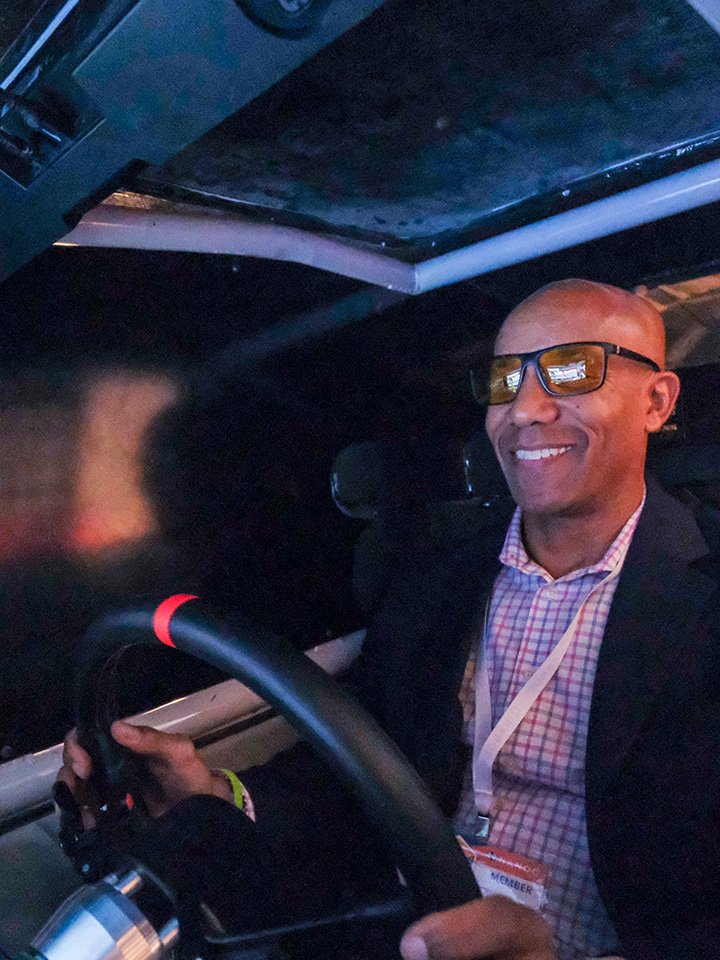
September 21, 2021
StoriesFuture Engineers: Stay Ahead of This Curve
What might surprise you about Network Engineering
by Elizabeth Drolet
According to an eWeek report, Network Engineering has been rated one of the ‘Hottest’ IT jobs. The field of Network Engineering is thrilling, but not for the faint of tech heart. This industry beckons the easy adapters and those who can stay ahead (and ride) all the curves of the technology world.
In exchange for keeping up in this fast-paced industry, one can expect rewards in long-term skill development and high average salaries. As we kick off the 2021-22 school season, it’s a perfect time to assess the industry.

So, where is it now? And where is it going?
To best answer these questions, NANOG went to an expert source, Levi Perigo, CU Boulder Professor of Network Engineering. The University of Colorado Boulder is one of the nation’s top-ranked Tier 1 research institutions and has been evolving in technical engineering for half a century.
Q: What do you think is most important for aspiring engineers to be thinking of right now?
A: While obtaining an education, it is important to learn technologies and theories in-depth, but also be able to apply them in various applications. One way to do this is through hands-on learning and specifically hands-on learning that focuses on outside-the-box thinking. It is critical to focus on expanding your mindset, being able to think about problems differently, and not being afraid to fail.
Q: Can you provide areas of expertise that network engineering students should focus on?
A: When thinking about what areas of expertise an aspiring network engineer should focus on, I would first consider: what makes me the most marketable and what is the industry looking for (both now and for the anticipated future)?
Right now, my recommendation is to focus on:
Technical skills
- Network automation and programmability, i.e. learning to program and manage networks at scale using software applications to control the network (with separated data and control planes)
- Cloud technologies and orchestration
Abstract skills
- Learning how to learn and apply new technologies quickly
- Critical problem solving, i.e. understand the overall problem, don’t focus only on the symptoms
Q: What would surprise engineers about the industry right now?
A: I am constantly being surprised by the industry—everything is changing and adjusting so quickly! It is difficult to narrow down what is most surprising, but here are some of my favorites:
- The speed and scale of many networks today were thought impossible in the recent past.
- The fact that programming skills are often considered more important than deep networking knowledge is hard to believe, but this presents a fantastic opportunity for aspiring network engineers because there is a huge demand for engineers that know traditional networking combined with programming.
- Many working professionals are extremely approachable and would love the chance to help someone new to the networking field—it never hurts to ask!
Q: What isn't talked about enough that should be?
A: Energy-efficient network operations such as Green Power Forwarding (GPF). This is a novel technique to incorporate individual network device energy efficiency into network forwarding decisions.
This technique provides the network administrator the capability to dynamically optimize the network between energy savings and network performance: Energy savings is achieved by prioritizing network paths that consume less energy
- Network performance is achieved by prioritizing paths with higher bandwidth, low latencies, and low packet loss.

Q: If you were starting or continuing your formal education how would you pursue it?
A: If I were to consider investing in my education as a network engineer, I would focus on finding a university or institution that follows these main concepts:
- Focus on learning the network technologies and protocols in depth
- Learn programming
- Apply this knowledge through hands-on, applied practice
- Practice building, troubleshooting, and automating networks
- There is no excuse for not re-enforcing this knowledge because it can be done virtually and at home!
- Learn to think differently and “outside the box” about network problems
- Maintain an active collaboration with industry
There are so many resources available to the aspiring network engineer—there is no excuse not to continue life-long learning!
Q: What do engineers need to know about the industry from an academic standpoint?
A: Universities are sometimes “ahead” of industry in teaching new ideas and theoretical concepts, but many of these theories will never work in the real world. Make sure you can apply your knowledge and skills in the real world.

Q: What evolutions are you seeing in academia and how do you expect it to change 5, 10, 20 years from now?
A: Currently one of the most disruptive changes is, access to world-class education anywhere via virtual, online learning. While this revolution is extremely important and provides a plethora of opportunities and benefits; I’m still a strong advocate that this style of education is greatly enhanced by in-person “physical” networking labs. There are a lot of intangibles that can be gained through configuring, managing, and operating physical networks, especially when learning.
In addition to virtual learning in academia, another important anticipated evolution of network engineering in the future is the transition from traditional academic scholarly research toward open-source community contributions. The open-source model of being able to quickly innovate and share resources with a broad audience will diminish the traditional model of research publications in scholarly journals.
NANOG 83 Hackathon is almost here! The event is an excellent way to network with other professionals, get hands-on experience + have fun. Learn more.

Recent Articles
April 18, 2024 • Stories
“With Great Risk Comes Great Reward”
A (Tech) Road Less Traveled with ISC's CEO Jeff Osborn
"When you're a kid working with venture capitalists, everybody talks about taking their money and running to a tropical island…and nobody ever does. But I did," Jeff Osb…
Learn MoreApril 11, 2024 • News
NANOG 91: Things To Do + See in Kansas City
Check Out Landmark Attractions While Attending Our Next Meeting
Kick off the summer season with some mouthwatering BBQ and all that jazz. NANOG invites you to join us for our upcoming virtual and in-person meeting, NANOG 91, in Kans…
Learn MoreMarch 15, 2024 • NANOG TV
WATCH NOW - Experience a NANOG Meeting
Our last meeting may have come and gone— but the memories will last forever! Check out some familiar faces + learn what makes a NANOG meeting special.
Learn More


